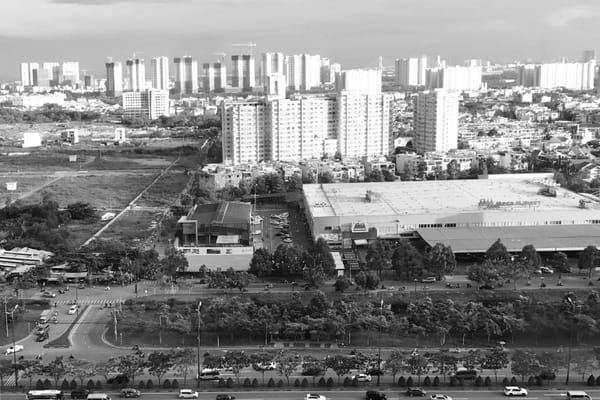Related to Tyler Cowen's Average is Over, which I summarised last week, is this piece in CityLab titled "The Jobs That Are Getting Priced Out of Superstar Cities":
The missing job categories relate to housing, construction, and landscaping; trucking, freight, and logistics; administering and processing transactions; and over-the-phone and online work in customer service and call centers. Such jobs may not pay enough to cover the cost of living in a high-priced metro, but they are also simply less common there.
(...) However, other types of jobs are massively overrepresented in expensive metros. These jobs span three types, as the table below shows. One is high-paying tech, science, and managerial jobs. Data scientists, for example, are nearly four times as likely to be located in expensive metros.
The same is true for certain creative jobs, such as creative directors and artists. A third category of jobs also shows up in expensive metros: fitness managers, pastry cooks, soccer coaches, dog walkers, and similar. Basically, these are the high-end service jobs that support the knowledge economy. Take ABA (advanced behavior analysis) therapists. They are more than 1,200 times as likely to be found in pricey metros than in more affordable ones.
These statistics are taken from a study by Indeed.com's chief economist Jed Kolko. Why are these changes happening? Kolko argues:
- Professional and creative knowledge-work jobs benefit from extreme clustering. These jobs tend to require considerable face-to-face contact.
- The clustering of these high-end jobs in turn increases demand for service jobs — particularly ones that service this new class of elites, like pastry chefs, dog walkers, and so on.
- Employers don't locate lower-paying, routine jobs (e.g. customer service, insurance, and call-centres) in expensive metros. What can be outsourced will be outsourced.
- The types of service jobs also hinge on the demographic changes in superstar metros: the people who live in these metros tend to skew younger, have higher education levels, and have fewer kids. So, fitness experts and personal trainers are in. Daycares are on their way out.
- Housing is costlier in these cities, so housing skews towards condominiums and apartments, which in turn lowers the need for jobs like lawn technicians and groundskeepers. And you need less garages and mechanics in high-density cities where public transport and Uber is more tenable than owning a car.
The New Ghost Towns
Cowen's geographical predictions from Average is Over are starting to bear out. The best paid jobs today seem to be knowledge work jobs that cluster in 'high productivity regions', as Cowen puts it. But we've not really considered what the cities these displaced people move to look like. It seems awfully trite to call these places 'low-productivity regions' when they are in fact the new losers in tomorrow's economy.
Without resorting to the excessive speculation Cowen did in Average is Over, we can invert the properties above, to get an equivalent list:
- Anaemic job growth, static labour market.
- Housing is relatively cheap compared to high-growth, high-productivity regions, but wage growth is slow.
- There would be migration of jobs related to grounds-keeping and gardening, due to the availability of land for housing; migration of jobs related to auto-maintenance, due to the necessity of automobiles in a low-density region.
- There may be movement of insurance and customer support roles into some of these low-productivity regions, once prices dip far enough behind the high-productivity centres.
- Constant movement of labour out from smaller cities to bigger ones.
A practical takeaway here: when picking careers, it probably pays to ask yourself, ”what sort of jobs would enable me to work in high-productivity centres like London, Hong Kong, Singapore or New York?” And then: "what skills would those jobs require me to have?”
Super-Gentrification
This is probably also a good time to take a look at 'super-gentrification', a related field of study that emerged in the early 2000s. This body of work studied the effect of the super rich pushing out the 'merely rich’ professional and middle classes from large cities into the outlying suburbs.
Kolko's study suggests that knowledge workers cluster in apartments and condominiums in high-productivity cities, but it's probably more useful to think of these workers as earning along a wage spectrum. There are richer knowledge workers, and less rich ones. The ones who are lower down the wage spectrum likely live in the suburbs outside these cities, and commute in to work every day.
Super-gentrification is caused by a bifurcation in the middle class. The argument goes roughly as follows: thanks to globalisation, certain jobs in the middle class benefit more than other jobs. Corporate lawyers, investment bankers, and knowledge-workers benefit from globalisation; middle-school teachers and firemen do not. So the former class of workers drive out the latter from expensive metros. In superstar cities, your commute time correlates inversely with your net worth. The more you make, the less you have to travel.
The same worries from the super-gentrification studies apply today. The social geographers who did this work worry about the 'hollowing-out’ of cities, robbing them of culture and the arts. They also worry about the emergence of a 'global-elite’ who care little about the fates of the cities they live in.
Takeaways
I'm trying to keep an incredibly pragmatic tone here at Commonplace. My approach is to take the world as it is, and I refrain from commenting on the nature of living in such a future. But I want to slip in an aside here: I am uncomfortable with these changes. I'm not sure I like where these trends are taking us.
(As always, I'm not sure my conclusions are right, and I'll update them as more data comes in.)
My takeaways are perhaps boringly simple:
Figure out which jobs benefit from globalisation. We know now that some kinds of jobs benefit more than others. This works indirectly. For instance, investment bankers and corporate lawyers alike benefit from globalisation due to the increased flow of trade around the world, and the growing complexity of capital and legal needs of equally complex multi-national corporations. The heart surgeons who operate on the overworked lawyers and bankers also benefit.
I believe that even in jobs like programming and designing, companies that work in industries or on opportunities that benefit from globalisation are better than companies that aren't positively exposed to globalisation.
Loads of small-business opportunities should emerge as a result of these demographic changes. I mean this in both high-productivity and low-productivity regions. It's probably worth it to think about this for a bit; too many entrepreneurs are today chasing opportunities in high-productivity cities.
For instance, the majority of knowledge workers are probably going to move out of expensive, high-density cities in their retirement. There's probably a small fortune to be made serving these retirees as they move out to lower-cost, lower-productivity regions.
Re-skill according to the bifurcation. If you're white-collar middle class and you see yourself getting pushed out due to the concentration of wages in the new cognitive jobs: re-skill early when you have the resources to do so. It's expensive to become one of these high-skill, ‘cognitive’ professionals. You're likely going to take a few years before you're competent in your chosen skill, and it's likely you'll have to take a pay cut.
If you don't have a good path to becoming a highly paid knowledge worker, then the next best thing is to figure out what these workers like, and to re-skill to provide those services to them. I think there's money to be made inventing new kinds of cronuts. Or poke. Or whatever it is that new yuppies like.
There's likely a good living to be made if you frame the labour market in one of these two ways. The scary part is getting caught in the middle.
Originally published , last updated .





